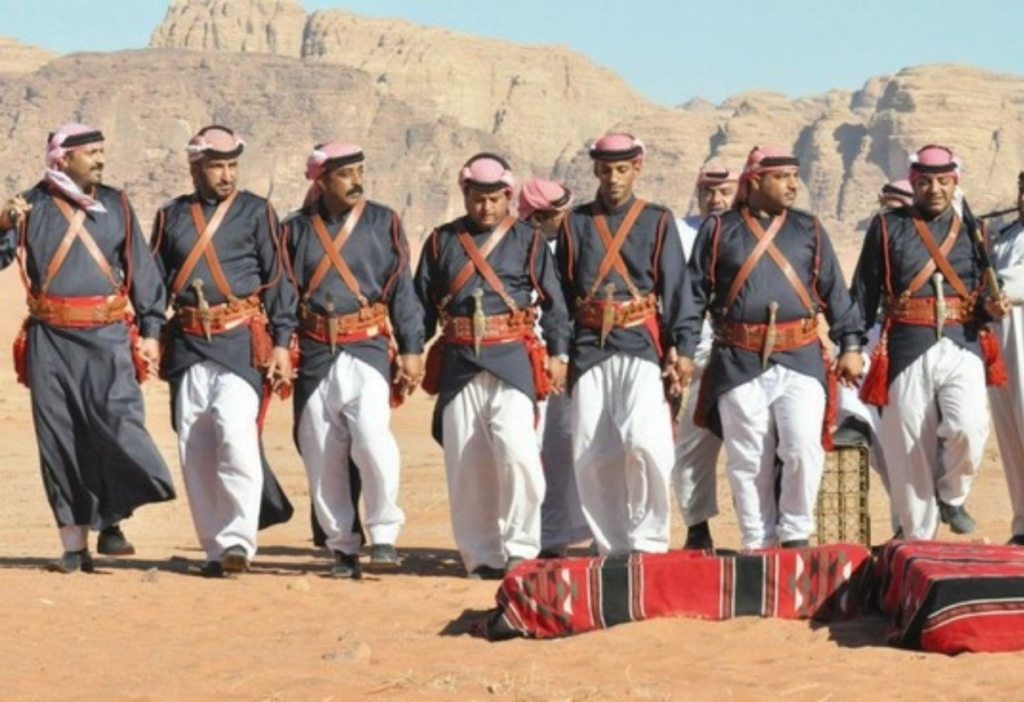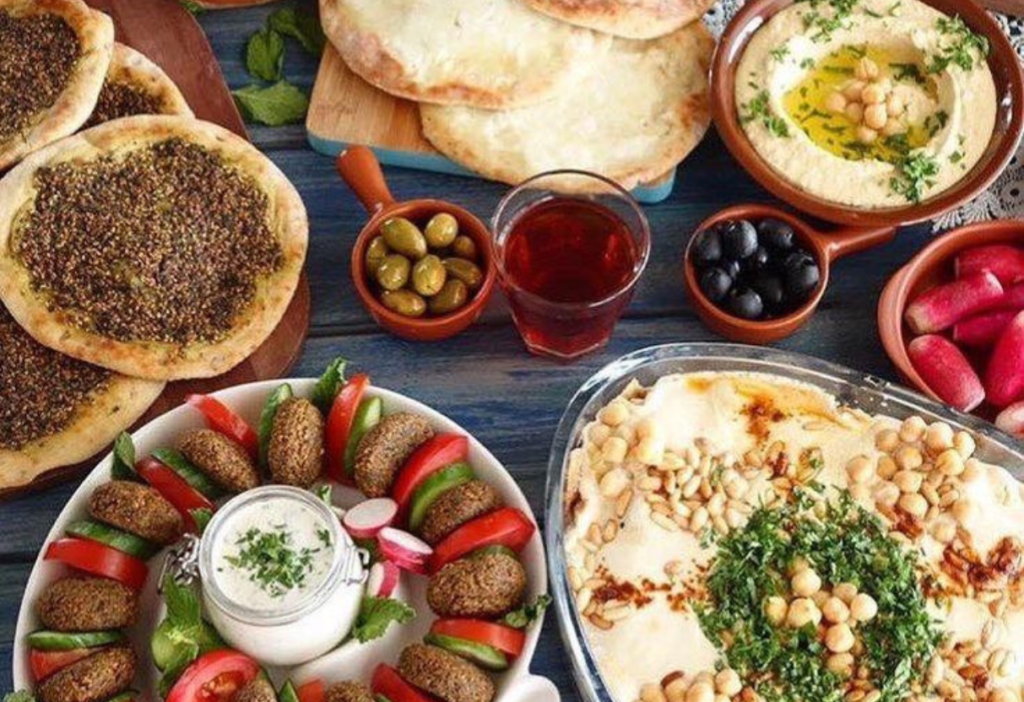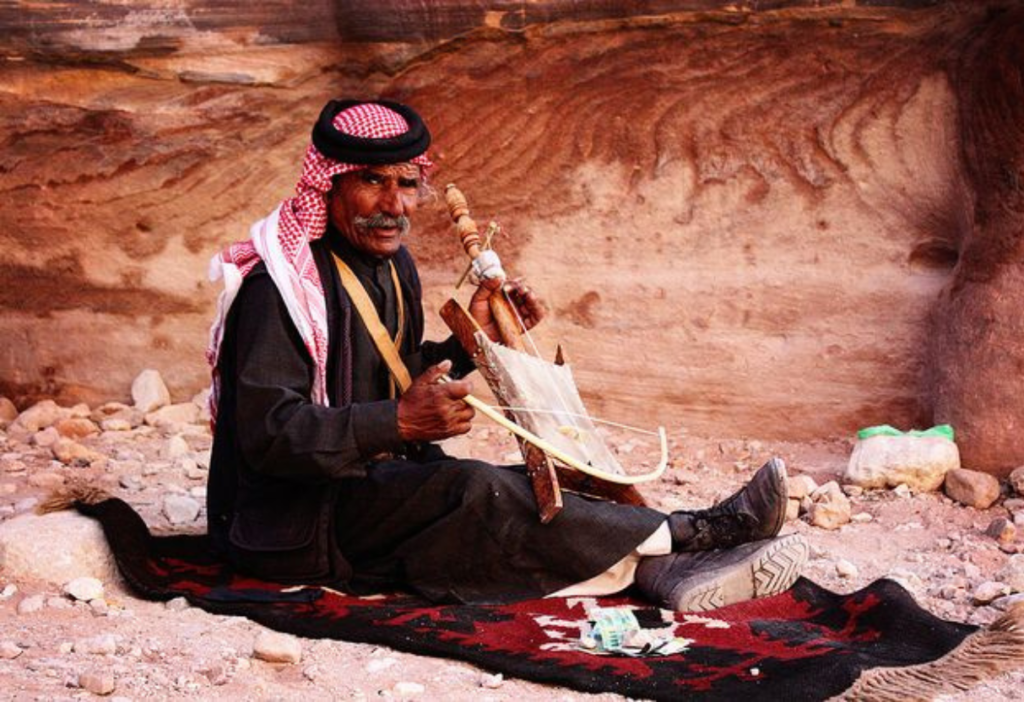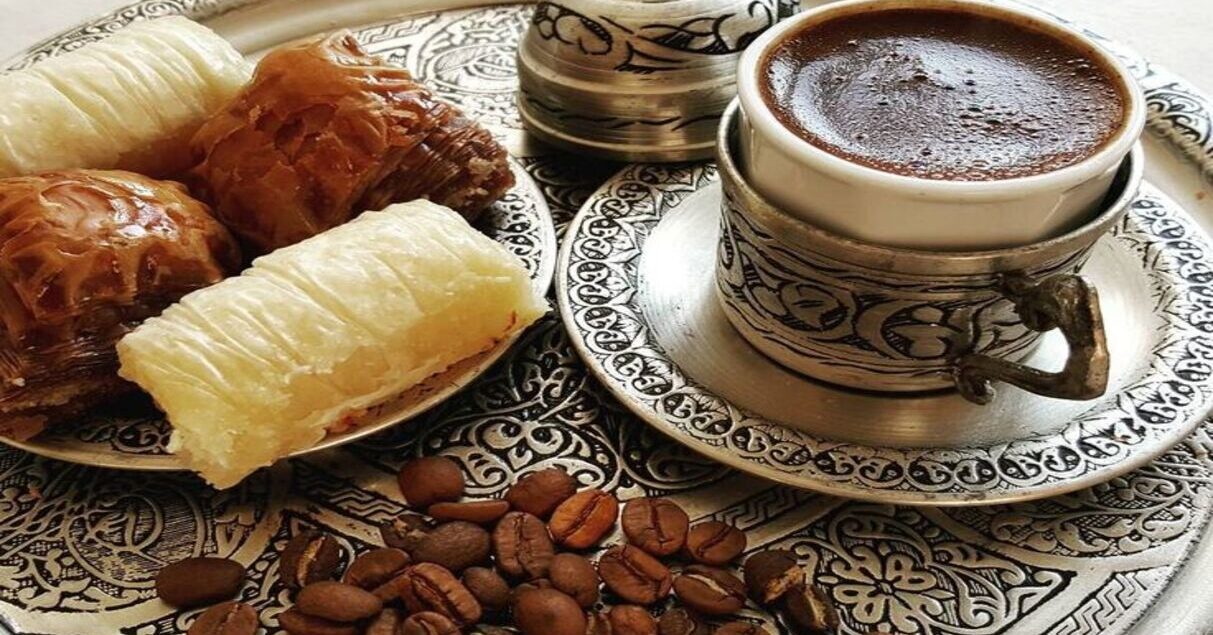Jordanian Traditions: A Rich Cultural Heritage
Jordanian traditions are an integral part of the country’s culture and identity. These traditions have been passed down from generation to generation and are deeply rooted in the country’s history. From food to clothing, music to dance, Jordanian traditions are diverse and unique.

Image credit: Cross Cultural Voyages Pinterest
One of the most prominent Jordanian traditions is hospitality. Jordanians are known for their warm and welcoming nature, and guests are treated with utmost respect and generosity. It is not uncommon for Jordanians to invite guests into their homes for meals or tea, and visitors are always greeted with a smile and a friendly conversation.
Another important tradition in Jordan is family values. Family is highly valued in Jordanian culture, and it is common for extended families to live together or in close proximity. Respect for elders is also an important aspect of Jordanian culture, and children are taught to show deference to their parents and grandparents. These values are reflected in Jordanian celebrations, such as weddings and religious holidays, where families come together to celebrate and strengthen their bonds.
Historical Roots of Jordanian Culture
Jordanian culture has a rich history that reflects the country’s diverse heritage. The country’s location at the crossroads of Asia, Africa, and Europe has made it a melting pot of different cultures and traditions. In this section, you’ll learn about the historical roots of Jordanian culture and how it has evolved over time.
Bedouin Heritage
The Bedouin people are an important part of Jordan’s cultural heritage. They are nomadic people who have lived in the Arabian desert for centuries. Their way of life is characterized by a strong sense of community, hospitality, and respect for the land. Bedouin culture has had a significant influence on Jordanian traditions, particularly in the areas of music, dance, and cuisine.
Bedouin music is characterized by the use of traditional instruments such as the oud, a stringed instrument similar to a lute, and the tabla, a type of drum. Bedouin dance is also an important part of their culture, with the dabke being the most popular dance in Jordan. It is a line dance that is performed at weddings, festivals, and other celebrations.
Bedouin cuisine is simple but delicious, with dishes such as mansaf, a traditional Jordanian dish made with lamb, rice, and yogurt sauce, being a popular choice. The Bedouin people are also known for their hospitality, with guests being treated with great respect and generosity.
Influence of Islam
Islam is the dominant religion in Jordan, and its influence can be seen in many aspects of Jordanian culture. Islamic traditions have been passed down through generations and are an integral part of Jordanian life. The Islamic calendar is used for important events and celebrations, such as Eid al-Fitr and Eid al-Adha.
Islamic architecture is also an important part of Jordan’s cultural heritage, with many historic buildings featuring intricate designs and beautiful calligraphy. The most famous example is the Al-Aqsa Mosque in Jerusalem, which is considered one of the holiest sites in Islam.
In conclusion, the historical roots of Jordanian culture are diverse and complex. The Bedouin heritage and Islamic traditions have played a significant role in shaping Jordanian culture, but there are also influences from other cultures and traditions. Jordanian culture is a unique blend of different elements, and it continues to evolve and change over time.
Major Jordanian Celebrations

Image credit: Nadia Al Pinterest
Jordan is a country with a rich cultural heritage, and its traditions and celebrations reflect this diversity. There are several major celebrations that Jordanians observe throughout the year, some of which are religious while others are secular. In this section, we will explore some of the most important Jordanian celebrations.
Eid Al-Fitr
Eid Al-Fitr is one of the most important religious celebrations in Jordan. It marks the end of Ramadan, the month-long period of fasting and spiritual reflection. During Eid Al-Fitr, families and friends come together to enjoy traditional foods and exchange gifts. It is also customary to give money to children, which is known as ‘Eidiyah’. The day begins with a special prayer, followed by a festive breakfast that typically includes dishes such as ‘Fatteh’ and ‘Maqlooba’.
Eid Al-Adha
Eid Al-Adha is another important religious celebration in Jordan. It commemorates the willingness of Prophet Ibrahim to sacrifice his son, as an act of obedience to God. During Eid Al-Adha, families sacrifice an animal, usually a sheep or a goat, and share the meat with family, friends, and the less fortunate. It is also customary to give money to children during this holiday. The day begins with a special prayer, followed by a festive breakfast that typically includes dishes such as ‘Mansaf’ and ‘Magloubeh’.
Independence Day
Independence Day is a secular celebration that commemorates Jordan’s independence from Britain in 1946. It is celebrated on May 25th every year, and it is a day of national pride and unity. The day begins with a flag-raising ceremony, followed by parades and cultural events. Families and friends gather to enjoy traditional foods and exchange greetings. It is also a day when Jordanians reflect on their country’s history and achievements, and look towards the future with hope and optimism.
In conclusion, these celebrations are an integral part of Jordanian culture, and they reflect the country’s rich history, traditions, and values. Whether religious or secular, they bring people together and create a sense of community and belonging.
Traditional Jordanian Cuisine
Jordanian cuisine is a reflection of the country’s rich cultural heritage and diverse history. The food is a blend of different flavours and techniques influenced by the Bedouin, Arab, and Ottoman cultures. The cuisine is known for its bold flavours, aromatic spices, and generous use of olive oil.
Mansaf
Mansaf is considered the national dish of Jordan. It is a traditional Bedouin dish made of lamb cooked in a sauce of fermented dried yogurt called Jameed. The dish is usually served on a bed of rice and topped with pine nuts and almonds. Mansaf is often served on special occasions such as weddings, Eid, and other celebrations.
Maqluba
Maqluba is a popular Jordanian dish that translates to “upside-down” in Arabic. It is a one-pot dish that consists of layers of rice, chicken or lamb, and vegetables such as eggplant, cauliflower, and potatoes. The dish is cooked slowly over low heat until the ingredients are tender and the flavours have melded together. Once cooked, the dish is flipped over onto a platter, creating a beautiful and impressive presentation.
Falafel and Hummus
Falafel and hummus are two of the most popular Middle Eastern dishes, and Jordanians have their own unique take on them. Falafel is made from ground chickpeas, onions, and spices, formed into balls and deep-fried until crispy and golden. Hummus is made from chickpeas, tahini, lemon juice, and garlic, blended together to create a smooth and creamy dip. Both dishes are often served together as a delicious and healthy meal.
In conclusion, Jordanian cuisine is a delightful blend of flavours and techniques that reflect the country’s rich cultural heritage. From the national dish of Mansaf to the popular Falafel and Hummus, there is something for everyone to enjoy.
Folklore and Performing Arts
Dabke Dance
Dabke is a traditional dance that is popular in Jordan and other Middle Eastern countries. It is performed at weddings, festivals, and other celebrations. The dance involves a group of people holding hands and forming a line or a circle. The leader of the group leads the dance by stepping and stomping their feet to the beat of the music. The rest of the group follows the leader’s steps and movements.
The dabke dance is often accompanied by traditional Middle Eastern music, such as the oud, a stringed instrument, and the darbuka, a drum. The dance is a celebration of community and solidarity, and it is often performed at events that bring people together.
Storytelling Traditions
Jordan has a rich tradition of storytelling, which dates back centuries. The country’s folklore is filled with tales of heroes, villains, and magical creatures. These stories have been passed down through generations and are an important part of Jordanian culture.
One of the most famous storytellers in Jordanian history was Abu Nawwas. He was a poet and entertainer who lived in the 8th century and was known for his wit and humour. His stories and poems are still popular in Jordan today.
In addition to oral storytelling, Jordan also has a tradition of puppetry. Puppets are used to tell stories and entertain audiences, and they are often accompanied by music. The puppets are made from a variety of materials, including wood, cloth, and leather.
Overall, Jordan’s folklore and performing arts are an important part of the country’s culture and history. They are a reflection of the country’s traditions and values, and they continue to be celebrated and enjoyed by people of all ages.
Frequently Asked Questions

Image credit: Noelia Alonso Pereyra Pinterest
What are the typical customs associated with marriage in Jordan?
Marriage is a significant event in Jordanian culture. The traditional customs associated with marriage in Jordan are a blend of Islamic and tribal customs. The engagement ceremony, known as “Khetbah,” is the first step towards marriage. During the ceremony, the groom’s family visits the bride’s family to ask for her hand in marriage. The couple then exchanges rings. The wedding ceremony, known as “Zaffeh,” is usually a large celebration with music, dancing, and food. The bride and groom wear traditional attire and are often seated on a stage to receive congratulations from guests.
Can you describe the traditional Jordanian cuisine?
Jordanian cuisine is diverse and reflects the country’s history and geography. The traditional cuisine includes dishes such as Mansaf, a rice dish served with lamb and yoghurt sauce, and Maqluba, a layered dish of rice, meat, and vegetables. Jordanian cuisine also includes a variety of bread, such as Khobz, a round flatbread, and Shrak, a thin flatbread. Tea is a staple drink in Jordan, and it is often served with meals or as a gesture of hospitality.
What are some unique customs and practices specific to Jordan?
Jordan has several unique customs and practices that reflect its history and culture. One such custom is the use of the Arabic language, which is the official language of Jordan. Jordanians also place a high value on hospitality and generosity towards guests. It is customary to remove shoes before entering a home or mosque. Jordanians also have a strong sense of community and family, and it is common to see extended families living together.
How does Jordanian culture influence daily life?
Jordanian culture influences daily life in many ways. The Islamic faith plays a significant role in daily life, with prayer times and religious holidays observed throughout the year. Family and community are also important aspects of Jordanian culture, with many social events and gatherings centred around these themes. Traditional dress is also still worn on special occasions, such as weddings and festivals.
What traditional attire is worn in Jordan for cultural events?
Jordanians wear traditional attire for cultural events, such as weddings and festivals. Men typically wear a long shirt called a “Thobe” with a headscarf called a “Keffiyeh.” Women wear a long dress called a “Thobe” with a headscarf called a “Hijab.” The colours and patterns of the clothing often reflect the region or tribe the wearer is from.
Could you detail some special customs observed in Jordanian society?
Jordanian society has several special customs that are observed throughout the year. Ramadan is a significant event in Jordan, where Muslims fast from sunrise to sunset. Eid Al-Fitr and Eid Al-Adha are also important religious holidays celebrated by Muslims in Jordan. Other special customs include the “Mouled” celebration, which marks the birth of the Prophet Mohammad, and the “Hajj” pilgrimage to Mecca, which is a religious obligation for Muslims who can afford it.
Jordan latest travel updates: US, AU , CA , UK
